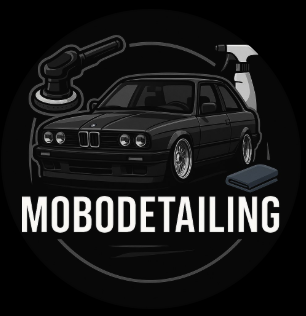If you’ve ever stared at your laptop thinking, “Can I actually get paid to write instead of doing this 9-to-5 job I can’t stand?” — you’re not alone. Most freelancers have felt that way, too. The good news is, you don’t need a journalism degree or years of experience to learn how to become a freelance writer. You just need a willingness to learn and the right tools to help you get started.
With this guide, you’ll learn how to build your writing skills, create a strong portfolio that markets your services with confidence, and use AI tools to speed up your freelance journey. Let’s start with the basics.
1. Develop your freelance writing skills
Your first move when learning how to become a freelance writer is to get good at writing, and to do that, you just need to write in a way that’s easy for people to understand. Here’s how to build your writing skills:
Practice consistently
Try setting aside a little time each day to journal, write a blog, or even just jot down random thoughts. AI tools like ChatGPT can give you feedback on how to improve your writing.
Read next: 10 ways to use AI for small businesses.
Explore different writing styles
Try different styles, like writing with personality or getting straight to the point, to figure out what comes naturally to you. Also, play around with various formats such as blog posts and email newsletters.
Take online courses or workshops
Check out beginner-friendly writing courses on sites like Udemy or Coursera, focusing on topics like copywriting and SEO writing. Even just one or two courses can give you a solid foundation.
Read widely
Read books, newsletters, blogs, and anything you can get your hands on. Pay attention to how writers hook you in and keep you engaged. You can also use AI to break down the pieces you love to better understand their structure.
2. Define your niche and target audience
The fastest way to succeed as a freelance writer is to specialize. When you focus on a niche, it’s easier to market yourself, build authority, and attract the right clients. Here’s how to figure out where you fit best:
Identify your strengths and interests
Do you have experience in finance? Or maybe you’re passionate about travelling. That’s a great starting point. Next, think about what kind of writing comes easiest to you. Do you enjoy blog posts or email newsletters? Your niche sweet spot is where your interests, experience, and natural writing style come together.
Research potential niches
Not every niche is beginner-friendly, some are easier to break into, and others have higher demand. Some strong niches you can explore include personal finance, health and wellness, and technology. Also If you’re wondering how to become a freelance journalist, consider niches like education or investigative reporting where strong storytelling and research skills shine.
Define your ideal client
Once you have a niche in mind, think about who you want to write for. Is it startups or agencies? The more specific you get, the easier it’ll be to create a portfolio, write pitches, and market yourself directly to the kinds of clients you want to work with.
Further reading: How to start a business.
3. Build a freelance writer portfolio
A solid portfolio is what turns you from “someone who writes” into “someone worth hiring.” Here’s how you can build your portfolio from scratch:
Create writing samples
Pick a few types of content businesses often need, like blog posts or email sequences, and write them as if you were working with a real client. Use AI tools like ChatGPT to come up with sample topics or even rough drafts. If you’re aiming to learn how to become a freelance journalist, try writing news stories or interview samples to show off your journalistic voice.
Start a blog or website
Having your own blog or personal website makes it easy for potential clients to find you. Bookipi offers a free AI website builder that allows you to showcase your writing samples, pricing information, and a contact form so clients can easily reach you.
Offer to write for free (At first)
When you’re just starting out, writing for free can help you gain real-world experience and make your portfolio feel legit. Offer to write for friends, small businesses, or local organizations, especially if you’re exploring how to become a freelance reporter.
Contribute to online publications
Look for websites or blogs in your niche that accept submissions, and pitch them trending topics. If you’re figuring out how to become a freelance reporter, pitching to local news sites can help you build credibility. Use AI tools like ChatGPT to research trending topics and organize your pitch before sending it.
4. Set up your freelance writing business
Running your writing business like a real business from day one helps you stay professional and shows clients you’re serious. Here’s how to set up your freelance business:
Create a professional website or online profile
Your website is basically your online business card that allows clients to see your work and reach out. At a minimum, your site should include your writing samples, the services you offer, and testimonials. Use AI tools like Claude to write your service descriptions or even draft your homepage copy.
Determine your rates
Check out what other writers charge on platforms like Upwork or ProBlogger. However, keep in mind that as a new writer, you might have to charge a bit less, but you can always raise your rates as you gain more experience. Additionally some niches like tech or finance tend to pay more.
Establish your business processes
Develop clear contracts which should outline project scopes, timelines, and payment terms. Also, set up simple systems for tracking your payments and communicating with your clients. Bookip’s invoice app makes it easy to track payments and build systems that ensure your business runs smoothly.
Additional resources:
- Grab our free invoice templates for freelance writers
- Learn how to track expenses as a small business
5. Market your freelance writing services
Marketing yourself might feel awkward at first, but it’s a key part of landing paid work and growing your client base. Here’s how to start putting yourself out there:
Network with potential clients
Start by joining online communities like LinkedIn or commenting on social posts from potential clients in your niche. The goal isn’t to hard-sell; it’s to connect and offer value.
Create a strong online presence
Share helpful tips or writing samples on platforms like LinkedIn or Twitter. If you’re not sure what to post, AI tools can help you generate content ideas or even write your captions for you.
Pitch your services to clients
Pitching simply means reaching out directly to a potential client. To cold pitch effectively:
- Find companies in your niche you’d love to work with
- Figure out who handles their content (usually a marketing manager or editor)
- Send a short, friendly email explaining what you do and how you can help
When pitching, make sure you focus on the client’s needs, not just your own. Also you can use AI to personalize your pitches.
Join freelance platforms
Set up a detailed profile on sites like Upwork or ProBlogger that includes your best writing samples, clear descriptions of what you offer, and a professional photo. Just keep in mind that these platforms are competitive, so your proposals need to be polished and include your portfolio.
6. Deliver excellent work and build relationships
When you consistently deliver great work and are easy to work with, clients will remember you and often want to collaborate again. Here’s how to make sure you deliver quality work and build a strong reputation:
Meet deadlines and exceed expectations
Always submit your work on time, follow the client’s project brief carefully, and add a small bonus like formatting suggestions or a few headline options. AI tools like Hemingway can help you spot grammar issues and ensure your work looks polished.
Communicate effectively with clients
Good communication is all about being responsive and keeping clients in the loop. You can do this by replying to emails within 24 hours, asking questions if instructions or revisions aren’t clear, and sending quick updates about delivery dates.
Seek feedback and continuously improve
After a project wraps up, take a minute to ask for feedback. You could ask your clients if there was anything they especially liked about your process or if there’s anything you could do better next time. Insights like these can help you sharpen your writing and collect testimonials for your website.
7. Leverage the right tools and resources
You don’t need a giant tech stack to succeed as a freelance writer, you just need a few smart tools that help you save time and stay organized. Here are some essential Bookipi tools that can help you easily run your freelance writing business:
AI website builder
With Bookipi’s AI website builder, you can create a professional-looking website in just a few minutes. It’ll generate:
- A portfolio page to show off your writing
- An About section and contact form so people can reach out
- A mobile-friendly layout that looks good everywhere.
Simplify your freelance workflow with Bookipi’s AI tools.
Proposal builder
Bookipi’s AI assistant includes a proposal maker that helps you automate the creation of customized, branded proposals. Features include:
- Ready-to-use templates
- A clean layout clients can review and edit
- Built-in e-signatures to seal the deal quickly
- AI-generated proposals
Invoicing & payments
With Bookipi’s invoicing tool you can send professional invoices in just a few clicks. It lets you:
- Add your logo and list your services
- Accepts payments online
- Set up reminders for overdue payments.
Conclusion
You don’t need years of experience or a fancy degree to get started with your freelance writing journey. You just need the right mindset and a few smart tools. Here’s a quick recap of how to make it happen:
- Write consistently to sharpen your skills and build confidence
- Create a simple, standout portfolio that shows off your writing style
- Use AI tools and platforms like Bookipi to market yourself and stay organized
By following these steps and using tools like Bookipi, you lay the foundation for becoming a successful freelance writer that satisfies clients and earns more money through referrals and repeat businesses.




